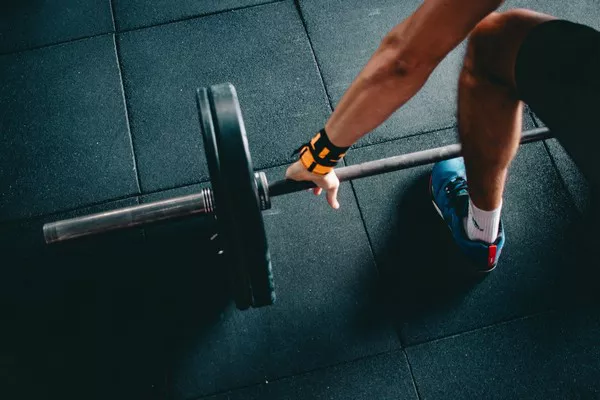In the quest for fitness and weight loss, the timing of exercise can play a significant role in achieving desired results. Among the various workout strategies, morning cardio has gained popularity for its potential to enhance fat burning and kickstart the metabolism. But does morning cardio truly burn more fat than exercising at other times of the day? In this comprehensive article, we delve into the science behind morning cardio, exploring its mechanisms, benefits, and practical considerations to help you make informed decisions about your workout routine.
Fat Burning Mechanisms
Before diving into the specifics of morning cardio, it’s essential to understand how the body burns fat during exercise. During physical activity, the body utilizes different energy sources to fuel muscle contractions, with fat stores being one of the primary sources, especially during low to moderate-intensity exercise. When energy demands exceed available carbohydrates (glycogen) in the muscles, the body turns to fat stores for fuel through a process called lipolysis.
The intensity of exercise plays a crucial role in determining the proportion of energy derived from fat oxidation. While low to moderate-intensity activities predominantly rely on fat as a fuel source, high-intensity exercises such as sprinting or HIIT (High-Intensity Interval Training) primarily utilize carbohydrates for energy due to their quick energy release.
Morning Cardio vs. Other Times
One of the key debates in the fitness community revolves around the timing of cardio exercise for maximizing fat burning. Proponents of morning cardio argue that exercising on an empty stomach, after an overnight fast, may lead to greater fat oxidation due to depleted glycogen stores. Conversely, opponents suggest that the overall energy expenditure throughout the day matters more than the timing of exercise.
Scientific Evidence
Research examining the effects of morning cardio on fat burning has yielded mixed results. Some studies suggest that fasted cardio may enhance fat oxidation during exercise, while others show no significant difference compared to exercising after consuming a meal. For example, a study published in the Journal of the International Society of Sports Nutrition found that individuals who performed cardio in a fasted state burned more fat during exercise compared to those who ate before working out. However, other studies have failed to replicate these findings, highlighting the complexity of the relationship between exercise timing and fat metabolism.
Hormonal Considerations
Hormones play a crucial role in regulating metabolism and fat burning throughout the day, with cortisol and growth hormone being of particular interest in the context of morning cardio. Cortisol, often referred to as the stress hormone, is naturally elevated in the morning and has been associated with increased fat mobilization and utilization during exercise. On the other hand, growth hormone, which peaks during sleep and in the early morning hours, has been implicated in promoting fat metabolism and preserving lean muscle mass.
Metabolic Effects
In addition to hormonal fluctuations, morning cardio may also influence metabolism and calorie burning throughout the day. Some research suggests that exercising in the morning can elevate metabolic rate post-exercise, leading to increased calorie expenditure over time. However, the magnitude of this effect may vary depending on factors such as exercise intensity, duration, and individual metabolism.
Benefits of Morning Cardio
Despite the ongoing debate, morning cardio offers several potential benefits for individuals looking to optimize fat burning and improve overall fitness:
Increased Fat Oxidation: Exercising in a fasted state may enhance fat oxidation due to lower glycogen levels, potentially leading to greater fat loss over time.
Improved Consistency: Establishing a morning exercise routine can promote consistency and adherence to a workout regimen, making it easier to achieve long-term fitness goals.
Appetite Regulation: Some individuals find that morning exercise helps regulate appetite and food cravings throughout the day, making it easier to adhere to a balanced diet.
Mood and Energy Boost: Starting the day with a workout can boost mood and energy levels, setting a positive tone for the rest of the day.
Considerations and Individual Differences
While morning cardio may offer advantages for some individuals, it’s essential to consider personal preferences and lifestyle factors when designing a workout routine:
Personal Preferences: Choose a workout time that aligns with your natural energy levels and daily schedule, whether it’s morning, afternoon, or evening.
Exercise Intensity and Duration: Regardless of the time of day, the overall amount and intensity of exercise are key factors in fat burning and weight loss.
Nutritional Considerations: Decide whether to eat before morning cardio based on individual preferences and exercise intensity. Some people may benefit from a light snack to fuel their workout, while others prefer exercising on an empty stomach.
Practical Tips
For those interested in incorporating morning cardio into their routine, here are some practical tips to maximize effectiveness and enjoyment:
Morning Cardio Options: Choose activities that you enjoy and are suitable for the morning, such as running, cycling, swimming, or HIIT workouts.
Pre-Workout Nutrition: Experiment with different pre-workout meal options to find what works best for your body and energy levels. Some individuals may prefer a small snack, while others feel comfortable exercising on an empty stomach.
Hydration: Remember to stay hydrated before, during, and after exercise, especially in the morning when dehydration levels may be higher after a night of sleep.
Conclusion
In conclusion, while morning cardio may offer some advantages for fat burning and overall fitness, it’s not a one-size-fits-all solution. The timing of exercise is just one piece of the puzzle, with factors such as exercise intensity, duration, and individual preferences playing equally important roles. Whether you choose to embrace morning cardio or prefer to work out at other times of the day, consistency and overall exercise volume are key for achieving weight loss and fitness goals. Experiment, listen to your body, and find a workout routine that fits your unique needs and lifestyle. Ultimately, the best time to exercise is the time that works best for you.
[inline_related_posts title=”You Might Be Interested In” title_align=”left” style=”list” number=”6″ align=”none” ids=”6868,6865,6862″ by=”categories” orderby=”rand” order=”DESC” hide_thumb=”no” thumb_right=”no” views=”no” date=”yes” grid_columns=”2″ post_type=”” tax=””]

































